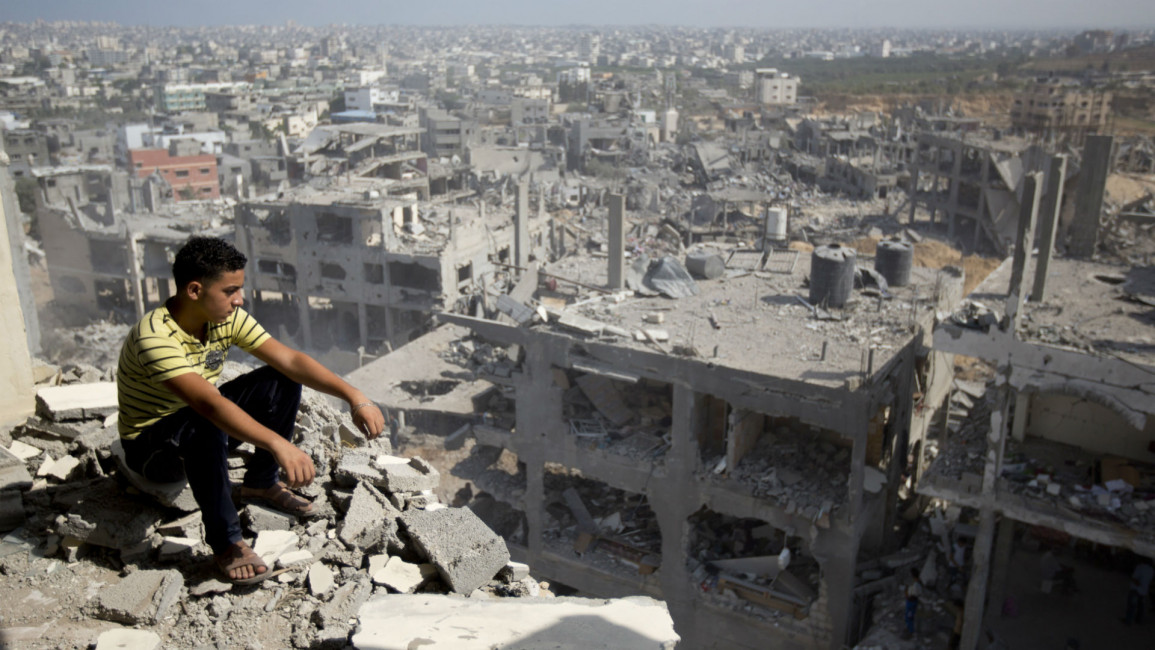
Summer in Gaza: Hot with a chance of rockets
According to a number of sources, the US and Europe, with the support of Arab countries, intended to present a resolution to the United Nations Security Council in the wake of the brutal Israeli onslaught on the Gaza Strip last summer.
The resolution reportedly proposed the creation of a military force charged with observing a ceasefire in the Gaza Strip, and at the same time helping the Palestinian Authority (PA) to assert control over the Strip and disarming Gaza's resistance factions.
The resolution was presented to the PA and Israel to obtain their approval before being submitted to the Security Council. The PA did not agree to the resolution as, according to the same sources, it feared the proposal might spark Palestinian infighting and that it would be held accountable for the Gaza Strip in those turbulent times.
Disarming the resistance
| The PA did not agree to the resolution as it feared it would be held accountable for the Gaza Strip. |
This was the scenario that was being prepared for Gaza: A fierce Israeli war followed by the intervention of international and Arab forces that disarm the resistance under the excuse of enabling the PA to regain control over the Strip and maintaining the ceasefire.
The timing of the revelations is interesting. It suggests that there are efforts to rehabilitate it and reintroduce it in the coming months after ensuring the conditions for the resolution's success are in place.
The conditions are there. Palestinian reconciliation has failed miserably and the unity government has not been able to achieve any of its goals, carrying the term "unity" only in name. Palestinian reconciliation has also gone from being an internal Palestinian matter to one in which regional powers involved, with Egypt controlling the course and even the negotiations toward reconciliation efforts. Egypt recently refused to allow a meeting between the delegations of Fatah and Hamas in Cairo, as even this small token of effort is no longer permitted.
Despite Hamas' willingness to relinquish the administrative burden in Gaza and its numerous announcements in which it welcomed the PA oversight of the borders and border crossing - requiring the deployment of 3,000 soldiers - none of these steps has been implemented.
On the contrary: another condition was added to the reconciliation agreement after the Gaza war that stated "one authority and one arsenal", which in other words is a request for the resistance to unconditionally surrender and give up its weapons before any real effort lift the siege.
It should be noted the siege on Gaza has been tightening by the continuous closure of the Rafah crossing, and Abdel Fattah al-Sisi has recently announced the crossing would remain closed until the PA returned to Gaza and took control, which means further delays to reconstruction efforts and further suffering for Palestinians, all in the hope of pressuring the resistance into submission.
These procedures come at a time when Egyptian courts have issued politically motivated rulings that rule Hamas and the Qassam Brigades are terrorist organisations, in conjunction with an intense Egyptian media campaign filled with lies and distortions that depicts the Gaza Strip as the source of terrorism in Sinai and an imminent danger to Egypt.
This campaign is also accompanied by the statements of senior PA officials, who excuse the restrictive decisions against Gaza, with some going as far as describing Hamas as the Palestinian Islamic State group (IS, formerly Isis).
At the same time, the Israeli security agency (Shabak) predicts that calm in Gaza is only temporary and that the next battle is closer than many people believe, according to the Walla Hebrew news site. This projection is similar to the conclusion of Haaretz journalist Gideon Levy, who expects a hot summer in Gaza.
These projections come at a time when the Israeli army is carrying out its largest military drills in the West Bank, which include exercises that assume the eruption of a violent intifada as a result of a war in Gaza and involve the storming of refugee camps and crowded residential areas, and the evacuation of civilians from battlefields.
No end to suffering in sight
| Some senior PA officials go as far as describing Hamas as the Palestinian Islamic State group. |
Can we collect the various parts of the picture to visualise what might be in store in the coming months? This is what I see: A continued siege on Gaza, more suffering for residents, no progress on reconstruction efforts, the association of resistance groups in Gaza with terrorism and increased incitement against these resistance groups.
All of these factors indicate a preparation for a new Israeli aggression against Gaza during which time the resolution to create a military force to control Gaza, disarm its resistance and impose a permanent ceasefire will be revived under the excuse of restoring the PA to the Strip.
The question remains whether Sisi's announcement of the creation of a joint Arab force to combat terrorism, primarily composed of Egyptian troops, has anything to do with the proposed Security Council resolution? Will Gaza be one of the joint force's missions? Will the PA feel less inclined to reject the proposed resolution with this Arab cover, as it will partake under the guise of wanting to reach a ceasefire, ease the suffering of Gaza's residents, in addition to restoring legitimacy?
These and many more questions will probably be answered by the summer. However the resistance factions need to work hard to foil these plans.
Opinions expressed in this article remain those of the author and do not necessarily reflect the opinions of al-Araby al-Jadeed, its editorial board or staff.
This is an edited translation from our Arabic website.




